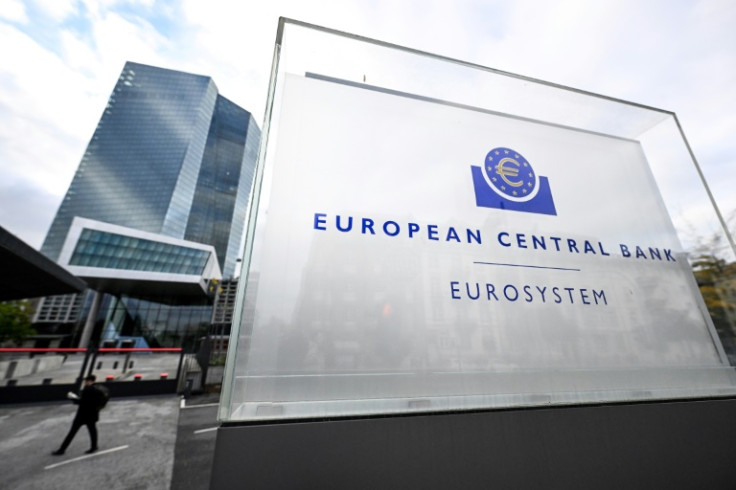
The European Central Bank froze borrowing costs again on Thursday and warned that the fight against inflation was not over, dousing investor hopes of early rate cuts next year.
As expected, the ECB used its final meeting of the year to keep interest rates on hold for a second consecutive time.
The pause left the benchmark deposit rate at a record high of four percent, following a historic streak of hikes to tame runaway prices.
Rates were at levels that if "maintained for a sufficiently long duration" would make a "substantial contribution" to bringing inflation back down to the two-percent target, the Frankfurt institution said.
Eurozone inflation slowed faster than expected in November to a two-year low of 2.4 percent, after peaking at around 10 percent last year.
But ECB president Christine Lagarde cautioned against declaring victory too soon.
"While inflation has dropped in recent months, it is likely to pick up again temporarily in the near term," Lagarde said, as support measures introduced by many governments last year in response to soaring energy prices were phased out.
Rising wages and the possible fallout from the conflict in the Middle East could also pose upside risks to inflation, she added.
"We should absolutely not lower our guard," Lagarde told reporters.
"Between hike and cut there's a whole plateau... of hold," she added.
The warning came after the recent slump in inflation and darkening economic picture had investors betting that the ECB would start slashing rates earlier than previously thought in 2024.
While many analysts initially expected the ECB to start slashing rates in June, some now expect a first reduction as early as March or April.
But Lagarde said governors did not "discuss rate cuts at all".
The pushback was in stark contrast to the US Federal Reserve's message on Wednesday that it expected to make three rate cuts next year.
The much-sought-after dovish tilt sparked a broad markets rally and fuelled optimism that other central banks will follow suit.
The Bank of England, however, mirrored the ECB's caution on Thursday.
It left its key rate unchanged, at 5.25 percent, and warned that the rate would remain high "for an extended period" to tackle stubborn inflation.
Lagarde reiterated that the ECB's next moves would be "data dependent".
The ECB would be "particularly attentive" to incoming statistics on wages and company profits, she said, with "rich" data expected in the first half of 2024.
"Today's ECB meeting confirmed our base case scenario of a gradual shift towards full dovishness with rate cuts starting in June," said ING economist Carsten Brzeski.
The ECB also unveiled its latest forecasts, which for the first time included the year 2026.
Eurozone inflation was now seen slowing to 2.7 percent in 2024 rather than the previously projected 3.2 percent.
In 2025, it will drop further to 2.1 percent, before dipping under two percent in 2026.
The bank also trimmed its growth forecasts, as the impact of higher borrowing costs takes its toll on households and companies.
Growth is expected to come in at 0.6 percent this year, down from a previous forecast of 0.7 percent, the bank said. For 2024, the figure was 0.8 percent, down from 1.0 percent.
The ECB on Thursday also announced that it would speed up trimming its balance sheet, pressing another lever in the fight against inflation.
On a bumper day for central banks in Europe, the Swiss National Bank announced it was holding its key interest rate at 1.75 percent.
Norway's Norges Bank meanwhile bucked the pausing trend by raising its main interest rate by a quarter percentage point to 4.5 percent. It signalled, however, that the hike was likely the final one in the current cycle.







